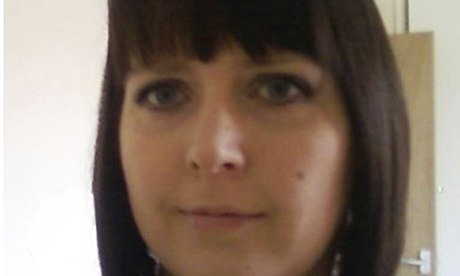
What are the actions that will propel a woman to use Clare's Law? To ask the police to disclose their partner's history of domestic violence? What should it take? A dodgy look? A black eye? A feeling? And then, what happens next?
Clare's Law, named after 36-year-old Clare Wood, will be rolled out nationwide from March to help protect vulnerable women from domestic violence. In 2009, after a year in which he'd threatened her with rape and been arrested for breaking down her front door, George Appleton strangled Wood, then set her body on fire. Appleton had a history of abuse – Wood's family said a law like this could have saved her life.
Except. Except there are questions.
As Christmas approaches, with its alcohol, darkness and difficult chats, so do more incidents of violence. And sometimes it cracks. It's the forced family-ness, the thing many of us (me included) look forward to at this time of year – the imposed fun, the microwave of a house bubbling with unresolved history, a history that can contribute to a feeling of being trapped, that can contribute to the manipulation, the violence. It's at this time of year that women in abusive relationships are trying harder than ever. Which is why I wonder how helpful it is for Clare's Law to suggest it is the responsibility of the victim to make that call. To save their own lives.
Already the question "Why doesn't she just leave him?" is one that those discussing violence against women must sighingly explain, again and again. The reasons veer between emotional and practical kerbs. The victim might feel ashamed, she might hope things will change. She might be isolated, cut off financially. She might think it's important to keep her children at the home they grew up in. She might still love him. But, say she calls – say she takes her phone into the office loos and quietly asks the police if her boyfriend has ever been arrested for beating an ex – and they tell her one of two things. They tell her he has a record of violence, or they tell her he hasn't. By which they mean they have no reports of abuse. This, bearing in mind that only 23% of victims report incidents of domestic violence to the police.
So what happens next? If she's called, presumably something is not quite right. Are the structures in place to give her the help she needs to leave? In the UK, two women are killed a week as a result of domestic violence, often (as happened with Clare Wood) after failure on the part of the police; they're most at risk just after leaving. And then where can they go? A Women's Aid survey showed that on a single day last June, 320 women and their children were turned away from refuges in Britain due to lack of space. These homes are being wiped out – funding for women's services has been cut by 31% in the past two years – which means even if a woman summons the courage to call, then to leave, there may be nowhere for her to go.
This is the thing. Clare Wood's problem wasn't that she didn't know Appleton had a history of violence, it was that the police did not respond. The difficulty is not (as Clare's Law suggests) in working out the risks of an abusive relationship. The difficulty, and where help is urgently required, is in leaving the relationship behind.
If we're serious about ending violence against women, we need to stand further back. Rather than concentrate on the tools available to women (or men) when they're suspicious, we should be investing in their future safety, and their futures. To prevent more violent relationships, we should be educating the young people, who (in Bedfordshire University's recent research) said they believed sexual violence was "normal and inevitable", and that women should "face the blame" for their own abuse. Here are the places in which small tortures start – the people who really need Clare's Law might not even know it. Rather than a phone line, we need exit routes.
Email Eva at e.wiseman@observer.co.uk. Follow Eva on Twitter @EvaWiseman

